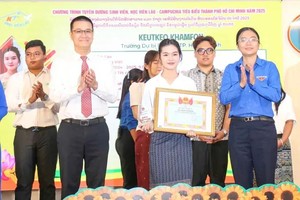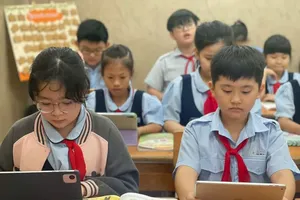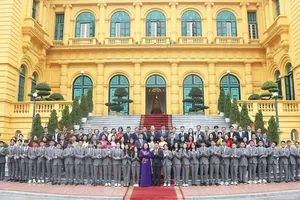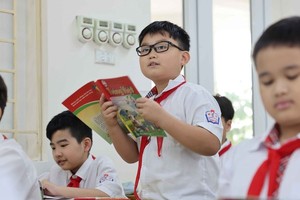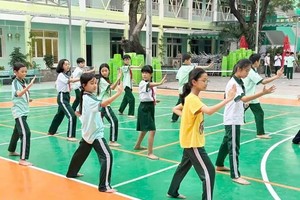The Ministry of Education and Training on December 4 announced that Vietnamese students were among the group of top-performing countries according to the latest PISA survey.
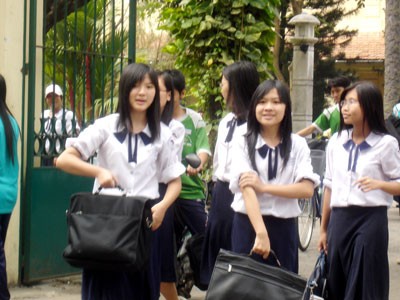
Nguyen Vinh Hien, Deputy Education Minister, said Vietnamese students had a higher average score in maths and science and ranked eighth in science, 17th in maths and 19th in reading among participants from 65 countries and territories. The results have surprised the world.
About half a million students from 65 nations and educational systems took part in the 2012 Program for International Student Assessment, or PISA, which is coordinated by the Paris-based Organization for Economic Cooperation and Development, or OECD.
For instance, in maths, Vietnam’s average score was 511 while the international average was 494. Vietnam ranked 17th out of 65. In reading, Vietnam’s average score was 508 while the international average was 496.
In science, Vietnam ranked eighth over 65 and just lagged behind their peers from Shanghai, China's largest city, Singapore, South Korea, Japan, Estonia and Hong Kong. The South East Asian country has entered the top 20 and its high average score outperformed many much wealthier western education systems such as Austria, Australia, Denmark, France, the UK, Israel, Switzerland, Norway and the U.S.
The Pisa tests - the Program for International Student Assessment - have become the most influential ranking in international education, based on tests taken by more than 500,000 secondary school pupils. Its tests were designed on the world’s general educational program. This proves that textbooks and curriculum in Vietnam have satisfactory knowledge and skills.
PISA assessed the competency of 15-year-olds in reading, mathematics and science (with a focus on mathematics) in 65 countries. Around 510, 000 students between the ages of 15 years 3 months and 16 years 2 months participated in the assessment, representing about 28 million 15-year-olds globally. The students took a paper-based test that lasted 2 hours. The tests were a mixture of open-ended and multiple-choice questions that were organized in groups based on a passage setting out a real-life situation. A total of about 390 minutes of test items were covered. Students took different combinations of different tests. They and their school principals also answered questionnaires to provide information about the students' backgrounds, schools and learning experiences and about the broader school system and learning environment. |









